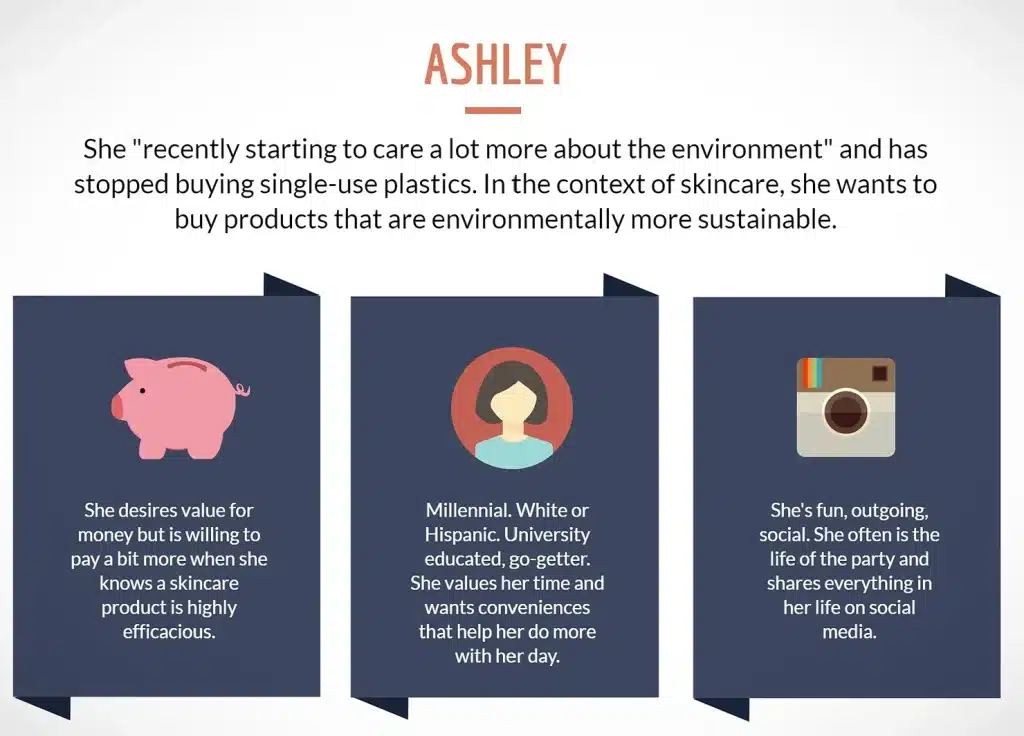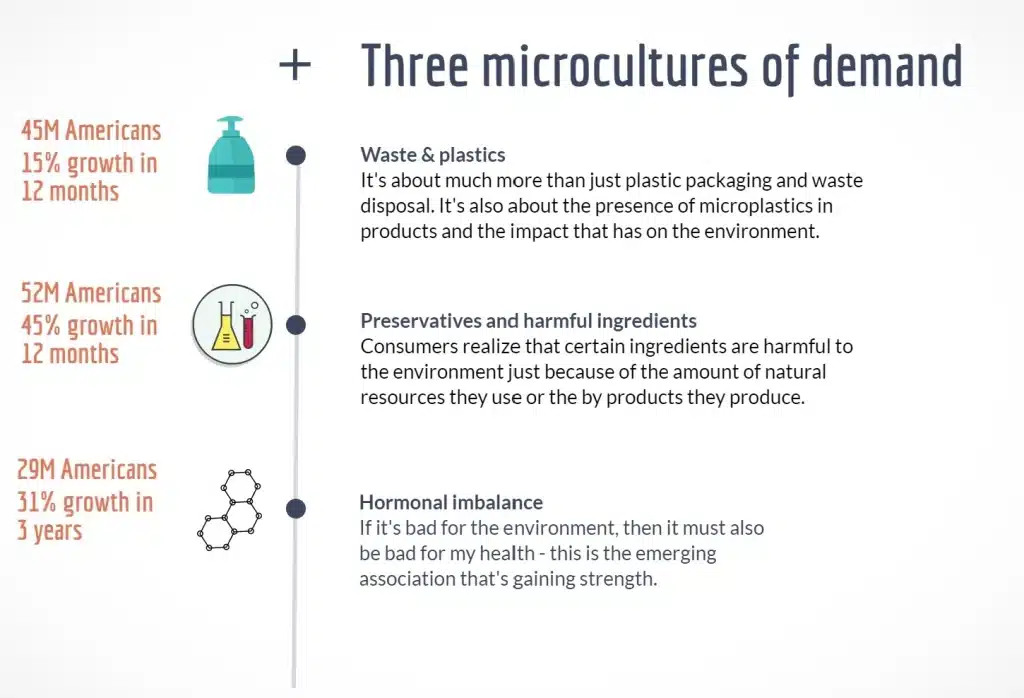Case Study
Why It’s Important to Study Meaning Rather Than People
By:
EVP & Group Director, Anthropology
Read the Full Article
It’s time to ditch that target consumer “persona”.
Imagine a world where ‘the brief’ for a brand doesn’t consist of a target audience – i.e. a persona. Rather, it conveys the meanings that the brand must embody, and the forms of symbolic capital (commonly referred to as social capital) it must provide to its consumer.
That’s what this article is about. I’m going to tell you why it’s important to shift your thinking away from tired old models, and how you can begin doing so.
Let’s begin with the brief because even if you work in innovation, there’s a very high chance that you are beholden to this “target consumer” despite your best efforts to get yourself and your team out of this mindset.
Let’s compare the old method with the new one in a simple scenario where we’re tasked with exploring emerging demand in the area of sustainable skincare.

Thank you!
Case Study
Why It’s Important to Study Meaning Rather Than People
By:
EVP & Group Director, Anthropology
Read the Full Article
It’s time to ditch that target consumer “persona”.
Imagine a world where ‘the brief’ for a brand doesn’t consist of a target audience – i.e. a persona. Rather, it conveys the meanings that the brand must embody, and the forms of symbolic capital (commonly referred to as social capital) it must provide to its consumer.
That’s what this post is about. I’m going to tell you why it’s important to shift your thinking away from tired old models, and how you can begin doing so.
Let’s begin with the brief because even if you work in innovation, there’s a very high chance that you are beholden to this “target consumer” despite your best efforts to get yourself and your team out of this mindset.
Let’s compare the old method with the new one in a simple scenario where we’re tasked with exploring emerging demand in the area of sustainable skincare.
THE OLD WAY: STUDYING PEOPLE.
In this example, we study consumers and identify a type of consumer (mostly millennial women) who best fits with our buyer’s profile.

The benefits of this kind of approach are clear –
- It’s easier to communicate. It makes the consumer sound more logical and senior leaders like logical statements.
- It’s easy to do research like this because it’s commoditized and cheap.
But, try to put yourself in the shoes of someone who has to innovate against this persona. Think about how they feel having to constantly answer the question – “but, how does this opportunity apply to Ashley?” It’s impossible to innovate in such an environment. Don’t get me wrong, it’s a useful tool for media buying. Just terrible for innovation or any other kind of initiative aimed at generating new revenue or improving profitability.
THE NEW MODEL: STUDYING MEANING.
In this example, we identify three major meanings driving consumer demand in the context of sustainable skincare. We don’t worry about ‘the who’ until much later.

The greatest benefit of this model is that we don’t have to assume that the consumer is monolithic. We can finally acknowledge the reality, which is that today’s consumer is highly nuanced and more illogical than ever before. What they do in one category may have no bearing on what they do in another. Decisions are simply made on the basis of which ones grant the consumer greater symbolic capital and therefore, more (symbolic) power in their social circles and communities. Studying the audience (instead of meaning) assumes that the idea of the unified self is true – i.e. that human beings have one central set of beliefs that consistently and logically guide their decisions across contexts and circumstances. While this notion of a unified self and therefore an authentic self may sound comforting to our brains, the truth is that human beings just don’t think or work this way.
Interestingly, this framework (of using one’s decisions to gain symbolic currency and power) isn’t anything new and there are hundreds of years of research in cultural anthropology, sociology, and even neuroscience to prove it. In fact, we summarized a lot of this in our most recent book, Microcultures. So, studying meanings in the context of a product, category, or marketplace allows us to decode the consumer’s mental model and put ourselves in their context without having to make assumptions about the consistency and logic of a persona’s decision-making process and lifestyle.
It allows us to understand WHY consumers choose certain solutions over others. In the world of big data, it allows us to not only study and decode meanings but also quantify and predict their future states. Which means, we can choose to target certain meanings (or sets of them) knowing that as they evolve and mature they will acquire a more diverse set of consumers along the way. Of course, studying meaning doesn’t mean we can’t understand the people behind those meanings. We still can get to the underlying demographic skews. It’s just not the central focus but rather a byproduct of the analysis. We no longer build solutions for audience personas but rather to solve for specific sets of implicit meanings in the context of our business. These meanings we also refer to as microcultures.
RESULTS ARE WHAT MATTER.
In the example I shared earlier, our analysis allowed the client to refocus their sustainability efforts on the microculture around preservatives and harmful ingredients. The demographics and attitudes of the consumer were secondary to the underlying meanings their solution needed to solve for.
Instead of starting with Ashley and then trying to recruit her into a bunch of co-creation sessions to try and get input on ideas and prototypes, our client-focused on specific demand requirements our team was able to uncover within the chosen microculture. This gave the client a clear “recipe for success” with which they were able to create a series of prototypes and test cases. These prototypes were then put in front of the consumer in a series of A/B tests revealing the most appealing outcomes quickly and efficiently.
Not only was the process faster, but it was also significantly more powerful – landing the client in a territory that continues to deliver significant growth despite the ongoing pandemic.






